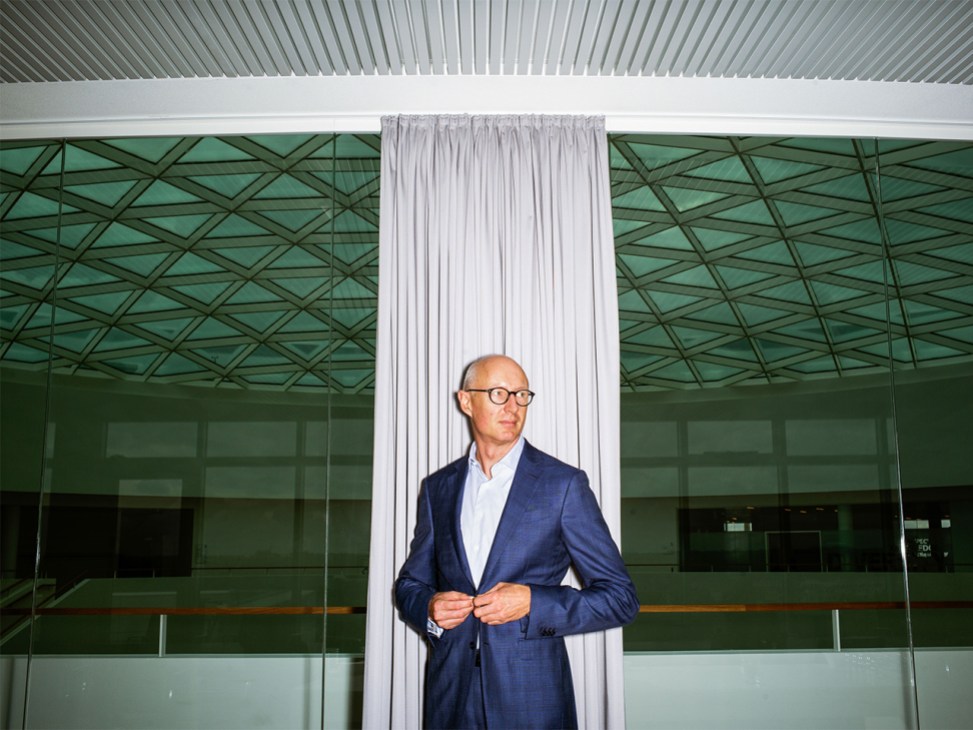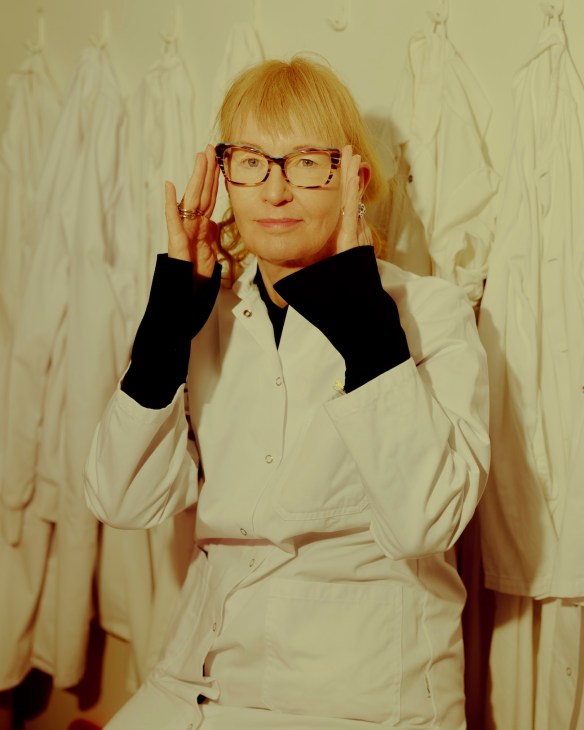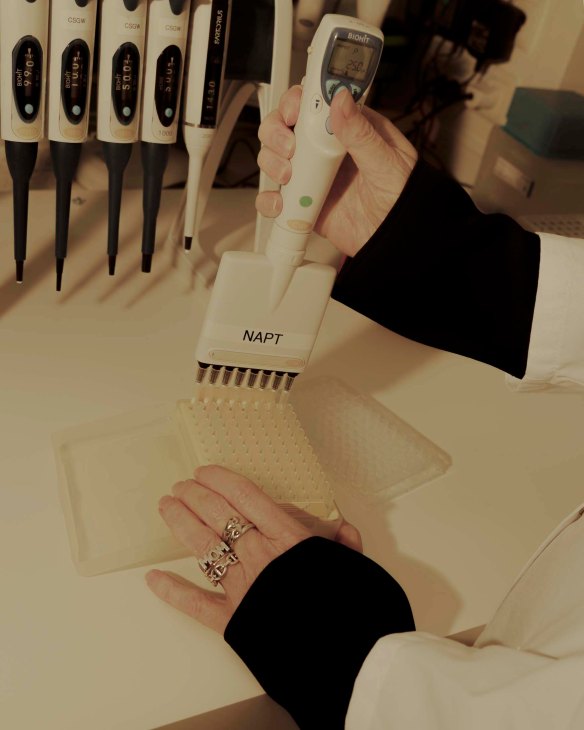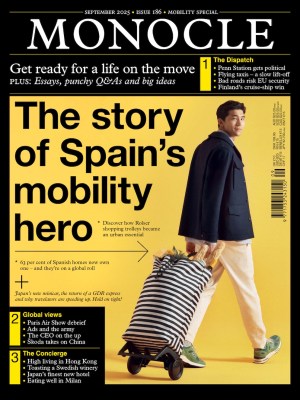Danish pharmaceutical giant Novo Nordisk announced 9,000 redundancies on Wednesday in response to lowered growth forecasts and a rapidly changing market. The company’s decline has been as swift as it has been surprising – to the Danes, at least.
By late 2023, sales of Novo’s diabetes drug, Ozempic, and its obesity treatment derivative, Wegovy, helped it become Europe’s largest company by market capitalisation. The first shock to what had been a sky-rocketing share price appeared in December 2024 with disappointing trial results of its next-gen obesity drug, Cagrisema. Meanwhile, the company was failing to meet demand, allowing rivals such as US-based Eli Lilly to increase their market shares. Growing online sales of counterfeit drugs compounded the challenges.
In late 2024, I visited Novo to interview Dr Lotte Knudsen, who leads the team whose research resulted in Ozempic. She was deeply impressive but I did sense an odd complacency about Novo’s production bottlenecks, their rivals and those aforementioned counterfeiters. The prevailing attitude seemed to be that “there are plenty of fat people in the world to go round.”
A few months later, at a get-together at an ambassador’s residence here in Copenhagen, I shared my concerns for Novo with a former executive of the company. She grabbed my arm as if she were an escapee from a cult: “Yes, exactly,” she said. “But it’s worse than that.” She described an organisation that was reticent to the point of self-harm when it came to seeking leadership from outside of a small cabal of top-level executives, all of whom were Danish.

On one hand, it seems fair that Danish companies are led by Danes. After all, the Danes’ confident leadership style is sought after in neighbouring Sweden, which is often hamstrung by consensus-driven decision making. But Danish CEOs are a strikingly homogenous bunch: predominantly males in their 50s, they inhabit the same wealthy enclave on the coast north of Copenhagen and even have a de facto uniform: a navy, two-button suit, with no tie. (It’s perhaps a trivial point but their cultural hinterland seems mostly limited to cycling and running.) Mads Nipper, the former CEO of crisis-hit Danish energy company Ørsted, is a classic example. His replacement, Rasmus Errboe, is a mere 46 years old – but he too was promoted from within the company.
Here is the issue, though: Novo Nordisk is a profit-driven company but some of those profits (notably dividends) end up in a philanthropic foundation. Dr Knudsen proclaimed herself “a proud socialist”. Altruism and philanthropy are of course deeply admirable but one sometimes wonders if Danes are hungry or ruthless enough for the global corporate environment.
In May of this year, Novo’s board sacked its own identikit Danish CEO, Lars Fruergaard Jørgensen, without having a replacement lined up. Interviewed on Danish television on the day of his firing, he seemed in shock but assured the interviewer that he would handle his defenestration like “a professional” (odd that needed saying). Jørgensen maintained his belief that the US authorities would crack down on counterfeit products. To me this seemed somewhat delusional, given the same US authorities were hurling tariffs at the world, threatening Danish interests in Greenland and then cancelled Ørsted’s crucial Rhode Island wind-farm project, which resulted in the state-owned energy company’s share price plummeting to a record low.
Last month, Novo Nordisk finally appointed Jørgensen’s replacement – Mike Doustdar, an Austrian-Iranian company vice-president, is the first non-Dane to run Novo since it was founded in 1923. I notice that he sometimes wears a tie. Perhaps things are looking up.
Michael Booth is Monocle’s Copenhagen correspondent. For more opinion, analysis and insight, subscribe to Monocle today. To read Booth’s interview with the quiet scientist behind Ozempic, click here.
“I really don’t like the description ‘miracle drug’,” Lotte Bjerre Knudsen, chief scientific advisor at Danish pharmaceutical company Novo Nordisk, tells Monocle. “The medicine gets misunderstood or overhyped.” No one can accuse Knudsen of hyping her work. She remains little known outside her sector and few have heard of her even in Denmark – but how else would one describe a revolutionary treatment for both diabetes and obesity that looks increasingly likely to provide advances in treating heart disease, kidney damage, Alzheimer’s and perhaps cancer too? Even if you’re unfamiliar with Knudsen and her team, you will have heard of the world-changing medicines that they have developed: Ozempic, used to treat diabetes, and Wegovy, its obesity-treating sibling.

The former, in particular, has achieved a cultural reach beyond any branded drug since Viagra. Celebrities make jokes about it at Hollywood award ceremonies and the Kardashians have name checked it; the prevalence of the appetite-suppressing medicine has been linked to restaurants’ declining revenues, as well as the return of skinnier models to the pages of fashion magazines. Airlines are reportedly anticipating fuel savings because its passengers will weigh less as a result of taking Ozempic.
The 60-year-old Knudsen joined Novo Nordisk in 1989 after studying biotechnology at the Technical University of Denmark. She began researching GLP-1, a molecule that occurs naturally in the intestine and was known to increase insulin levels and lower blood glucose. There’s a popular myth that Knudsen was only working on a treatment for diabetes and that Ozempic’s effects on obesity were an unexpected bonus. “No, no,” she says in her modest open-plan office. “It wasn’t discovered by chance. We were always interested in obesity.”
She and her team might have been interested but the same can’t be said for everyone around them. Novo’s then ceo, Lars Rebien Sørensen, made the now embarrassing pronouncement that there was “no business” for the company in weight loss. The wider pharmaceutical industry considered obesity drugs to be something of a taboo following several scandals in the 1980s. “Lars is good at making fun of himself about this,” says Knudsen. “But he was a phenomenal leader. He gave me the resources that I needed. I only discovered years later how provocative all of this was to some people in the industry – first, that we were making an injectable diabetes treatment that wasn’t insulin and, second, that we were also taking that approach with obesity. But I am a very resilient person.”

In 1996 there was a major breakthrough: the first analogue of GLP-1. Then came the identification of the correct fatty acid to bind GLP-1 to albumin in the blood so that it could stay in the body longer than its natural counterpart. (This required testing 4,000 options.) The final incarnation of the molecule, semaglutide, remains active in the body for up to a week. It was launched as Ozempic, an injectable diabetes treatment, in 2018. Further headlines came with the publication of the results of its 2021 trials for obesity: test subjects experienced a reduction in bmi of more than 15 per cent.
Last year, Knudsen celebrated her 35th anniversary at Novo Nordisk. The drugs that she has helped to create are enormously profitable with an 84 per cent margin and are responsible for 69 per cent of the company’s revenue. Novo Nordisk is now Europe’s largest company by capital valuation and in recent years has almost single-handedly kept Denmark out of recession (indeed, its value is larger than the country’s annual GDP). The contribution of Ozempic and Wegovy to the nation’s soft power is hard to quantify but they have enhanced its reputation as a pharmaceutical, fintech and science leader. Presumably senior management threw a huge party for her and cast rose petals before her every day? “No, they don’t throw rose petals,” she says. “We have so many fantastic people and I try to share the glory with as many of them as possible. I received the same bonus as anyone else who has been here as long. To celebrate, I just invited 10 people to my local Italian restaurant.”

When we meet in Novo Nordisk’s research centre in a light-industrial zone west of Copenhagen, Knudsen has just been awarded the Lasker Prize, sometimes called “America’s Nobel”, for clinical research. There’s talk of her one day winning the Nobel. “I don’t think about that,” she says, shaking her head. “That’s not my purpose. You normally get that after decades of work. I was wholly surprised when Lasker called.” Knudsen commutes from her flat near Copenhagen Central Station by the S-train and seems to have no conspicuously extravagant habits. She has no intellectual property rights over her discoveries and has never asked for a raise. “We have little inequality in Denmark,” she says. “At Novo, we have a high level of psychological safety so I’ve always felt very free to speak my mind and take risks. The company is about being patient-centric and ethical. The leaders have always thought about how they wanted to inspire people to be creative.”
Novo Nordisk is controlled through voting rights by Novo Nordisk Fonden – the world’s largest charitable foundation with a value of €149bn, making it twice the size of the second-placed Bill and Melinda Gates Foundation. But it’s still a for-profit company. Knudsen tells Monocle that she is delighted by the colossal sums that her discoveries have generated because they mean that she can ask for more research funding. But what if, for example, they were to discover a permanent cure for diabetes, say, or obesity? Surely that would be an act of monumental self-sabotage?
“If you really believe in your own strategy, that you need to be patient-centric, you have to be involved in that,” she says. “Otherwise, you aren’t a cutting-edge company.”
Novo Nordisk isn’t immune to the controversies that attend Big Pharma, such as the high costs of its drugs and its influence on the medicine and research industries. The side-effects of Ozempic are well documented and include nausea and vomiting. A recent study showed that most users stop taking it after two years and put on weight again. Meanwhile, there’s growing competition from, among others, US company Eli Lilly’s Zepbound, which is reportedly more effective as an anti-obesity drug. A Novo spokesman says that the market is big enough to accommodate rivals: 500 million people suffer globally from diabetes and a billion from obesity. By 2035 more than half of the planet is projected to be overweight. In 2021, Novo Nordisk launched Ozempic in China.
There’s a broader issue: that the drug is a band-aid for a far larger problem, our corrupted food system in which industrial food companies bombard us with addictive, ultra-processed combinations of fat, salt and sugar. Ozempic works in two ways: by “tricking” the brain into believing that it is satiated and by slowing digestion so that you feel fuller for longer. Doesn’t it deny us our free will? “That’s a really good question,” says Knudsen. “We need to understand it better, which is why I would like more funding into obesity research. I would say that you can train your free will but only if your genes and your society – as well as the food industry – let you. Medicine is one way to help people but the environment is also important, so we need to talk about prevention and healthy living.”
Knudsen is mostly a vegetarian and believes in regular exercise. As for the future applications of her discoveries, she can’t comment but has said that the data on semaglutide’s ability to reduce the risk of cardiovascular disease is “phenomenal” – partly because it lowers inflammation, which suggests that it could have other major applications.The company is investigating its effectiveness against Alzheimer’s too; she tells Monocle that there’s “a lot of mouse data but no clinical data”. The clinical data is scheduled for release this year.
Success doesn’t appear to have gone to Knudsen’s head. But as Monocle leaves, it occurs to us that one day her career might be given the Hollywood treatment. Who would play her on screen? “Connie Nielsen,” she says, without hesitation. A Danish screen star playing a Danish star of science? Seems like good casting.



